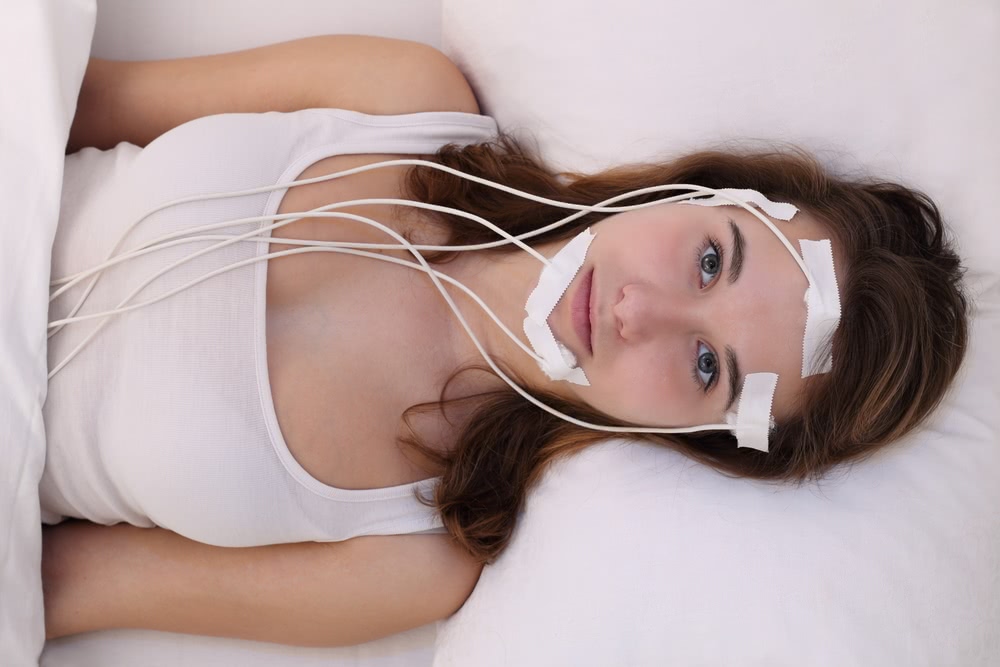Updated February 4th, 2019
Millions of Americans actively suffer from Sleep Apnea or a similar sleep-related health issue, yet only a small fraction seek assistance for it. If you are tired of the mental and physical fatigue related to inadequate rest, and the range of other health issues that stem from Sleep Apnea and generalized sleep concerns, it is time to take action by speaking with your doctor. After, you’ll likely be scheduled for a sleep study test – a proven method to help determine the severity of your condition. Here’s what you should know before you go.
In-Lab vs Home Sleep Studies
Both an in-lab and home sleep studies can diagnose Sleep Apnea. However, many prefer home sleep studies for the following reasons:
- Increased comfort (you can sleep in your own bed)
- Ease of use (no need to arrange care for children)
- Reduced cost; home sleep studies can cost between $150 and $500, according to the American Sleep Association. vs in lab sleep studies that can cost about $1300, according to the National Sleep Foundation.
The information below details how to best prepare for an in-lab sleep study. To see how best to prepare for a home sleep study visit our write up on “How to Complete a Home Sleep Study in 5 Easy Steps“.
How Does an In-Lab Sleep Study Test Work?
Simply put, an in-lab sleep study test, referred to in the medical community as a polysomnogram (PSG), allows a specially-trained team to monitor various body movements and vital signs while you’re asleep. You’ll lay down in a hospital bed and a variety of monitors and diagnostic equipment will be attached to record about a dozen unique variables throughout the night including:
- Eye movement throughout the night, using an electrode placed near the eyes
- Brainwaves, measured with an electrode on the scalp
- Various breathing-related measurements, using elastic bands, electrodes and other sensors
- Blood oxygen levels, using a finger-mounted probe
- Movement of limbs, measured via lower-leg electrodes
- Muscle movements, also measured via electrodes
- Esophageal pressure, determined by placing a small tube in the nose and esophagus
Specialists will look for any “red flags” observed during the sleep study test that may indicate symptoms of Sleep Apnea, chronic obstructive pulmonary disease, and other respiratory concerns. During the study, the team may introduce therapeutic devices, like oral appliances or a CPAP machine to see how you react.
What to Pack for a Sleep Study
Your doctor will give you a list of things to bring, but at the very least, ensure you have:
- Comfortable clothes or pajamas to sleep in
- Your own pillow and blanket from home to make you feel more comfortable
- A book, magazine, or music to help you settle down
- Any medications or toiletries you normally use prior to going to bed
- Your phone charger
Sleep Study Do’s and Don’ts
- Shower before you arrive
- Don’t use conditioner in your hair or body lotion on your skin
- Avoid caffeine or stimulants that can keep you up at night
What to Expect During a Sleep Study Test
Keep in mind that the goal of the sleep study test is to observe a typical night’s sleep. So, don’t skip any medications you’d normally take during the day or evening (unless specifically instructed to do so by your doctor or the specialists involved in the sleep study), and try to relax.
Let your sleep specialist know what time you normally wake up in the morning, and whether or not you have any pre-scheduled appointments the next day. They’ll make sure you’re up on time and not worried about not having your alarm right next to you.
Also, tell your team if you frequently get up during the night to use the restroom. They will help you to safely detach the sensors and not disrupt testing more than necessary.
How Accurate are Sleep Studies?
The tests conducted in sleep studies are the most accurate for the diagnosis of Sleep Apnea, according to the American Sleep Association. The accuracy of the sleep study depends largely on the number of measurements included.
After Your Sleep Study Test
Once the test is complete, allow a few days before you get your test results back. The data will help your doctor understand how to improve your ability to get a good night’s sleep.
Many patients who complete a sleep study test uncover that Sleep Apnea is the reason for poor rest at night, and CPAP therapy, dietary changes, and weight loss are three important ways to combat this potentially-dangerous diagnosis.
For more information about CPAP devices and how they can help improve nighttime breathing in Sleep Apnea patients, contact the experts at CPAP.com today.




